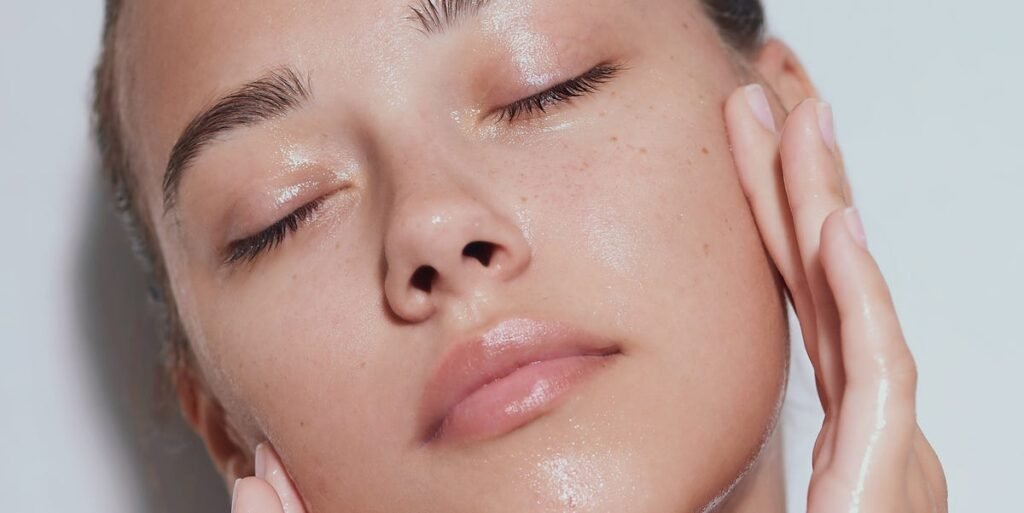The Skincare Secret: Harnessing the Power of Hypochlorous Acid
If you have dry or sensitive skin, the idea of using acids in your skincare routine might seem intimidating. While many exfoliating acids can be irritating, hypochlorous acid emerges as a gentle yet effective alternative. This unique ingredient is gaining traction in skincare circles for its remarkable ability to soothe various skin concerns without causing adverse reactions.
What is Hypochlorous Acid?
Hypochlorous acid (HOCl) is a naturally occurring compound formed when chlorine dissolves in water. It boasts potent antimicrobial properties that allow it to effectively neutralize bacteria, viruses, and fungi. Interestingly, your body produces hypochlorous acid through white blood cells as a part of the immune response, playing a critical role in fighting infections.
When applied topically, hypochlorous acid can help maintain a clean and balanced environment on the skin, making it ideal for supporting overall skin health. Pooja Rambhia, MD, a board-certified dermatologist, emphasizes its gentle yet effective action in promoting skin health and treating various dermatological conditions.
Benefits of Hypochlorous Acid
Incorporating hypochlorous acid into your skincare routine offers various advantages:
- Antimicrobial Properties: Helps cleanse the skin by reducing bacteria, which can prevent acne and infections.
- Supports Wound Healing: Accelerates the healing process for minor cuts and scrapes.
- Reduces Inflammation: Calms irritated skin and reduces redness, beneficial for conditions like eczema and rosacea.
- Balances Skin pH: Maintains the natural pH of the skin, enhancing overall skin health and resilience.
- Hydration: Provides a mild moisturizing effect that keeps skin hydrated without feeling greasy.
Is Hypochlorous Acid Safe for All Skin Types?
Yes! Hypochlorous acid is generally well-tolerated by most skin types, including sensitive skin. According to Dr. Rambhia, its gentle nature has a similar pH level to human skin, minimizing the risk of irritation. It is widely used in managing wounds, acne treatment, and as a disinfectant for skin prep before dermatological procedures.
How to Use Hypochlorous Acid
Hypochlorous acid can be incorporated into your skincare routine seamlessly. Here’s how to make the most out of this incredible ingredient:
- Replacement for Toner: Post-cleansing, use a hypochlorous acid spray instead of traditional toners. This helps eliminate microbes and offers anti-inflammatory effects.
- Post-Workout Application: Ideal for reducing bacteria and preventing breakouts after sweating.
- Daily Use: It can be applied throughout the day, up to three times daily, depending on individual skin conditions. For liquid solutions that aren’t in spray form, gently dab it onto the skin using a cotton pad.
Are There Any Side Effects?
While hypochlorous acid is generally safe, mild irritation can occur, especially with excessive use. Dr. Finney stresses the importance of adhering to product instructions and being aware of any unusual reactions. If you notice redness, itching, or discomfort, discontinue use and consult a dermatologist.
Recommended Hypochlorous Acid Products
If you’re ready to experience the benefits of hypochlorous acid, here are some dermatologist-approved sprays you may consider:
1. Tower 28 Beauty SOS Rescue Spray
Best for post-workout, this spray is refreshing and carries the National Eczema Association Seal of Acceptance, perfect for sensitive skin.
2. Personal Day Trust Me On This Hypochlorous Acid Spray
This fine mist is ideal for application over makeup and can also substitute your toner, offering a smooth finish without disrupting your look.
3. Magic Molecule Hypochlorous Acid Solution
Targeted for acne, this formula includes hypochlorite ion to combat acne-causing bacteria while delivering a moisture boost.
Conclusion
Hypochlorous acid stands out as a skincare powerhouse that provides numerous benefits without the harshness associated with many other acids. Its versatility and mild nature make it suitable for a wide range of skin types. If you’re looking to enhance your skincare routine, consider adding this incredible ingredient to your arsenal.
For more information on incorporating hypochlorous acid into your skincare routine, see Healthline and Dermstore.


